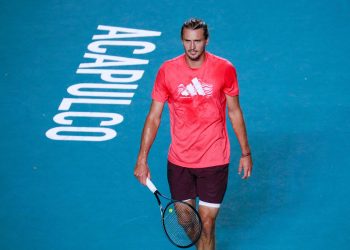Daniel Vallverdu, the highly experienced coach of tennis star Grigor Dimitrov, has taken a surprising stand against the public’s misguided judgement against Jannik Sinner. According to Vallverdu, the anti-doping agencies should be the ones in the line of fire, not the beleaguered Italian player.
The International Tennis Integrity Agency (ITIA) previously cleared Sinner of any fault or negligence relating to two failed doping tests. Despite this ruling, the World Anti-Doping Agency (WADA) surprisingly decided to challenge the decision, sparking a wave of controversy. Although the matter did not escalate to the Court of Arbitration for Sport (CAS), Sinner, a top-ranked male player, was still slapped with a three-month doping suspension.
This doping saga, which has been in the spotlight since August, has seen Sinner bear the brunt of the criticism and backlash. Public opinion seems reluctant to let the Italian player off the hook, with many suggesting that he was given preferential treatment compared to others in similar situations.
Vallverdu, who has previously worked with the likes of Andy Murray, took to social media to express his disappointment at the lack of solidarity in the tennis community. In a post that resonated with many, he stressed that the real victims in this situation are Sinner and the sport of tennis itself.
In a passionate plea for fairness, Vallverdu wrote, “After reflecting on the tennis community’s response to Jannik Sinner’s ban, I’m disheartened by the absence of camaraderie. Most aren’t focusing on the case’s facts. The real casualties here are JS and Tennis.”
Vallverdu further emphasized that the focus should be on the anti-doping agencies, their procedures, and rules instead of victimizing the player. He asserted that Sinner had not gained any performance-enhancing benefits from this ordeal. “I have known JS since he was 14 years old and I can confidently state that he is 100% not at fault.”
In a subsequent social media post, Vallverdu pointed out that the anti-doping agencies are responsible for the inconsistency and inaccuracy in most recent tennis cases. He ended his statement with an assertion that Sinner should not have been banned in the first place, sending out a message of support to the player and his team.
Vallverdu’s bold stance and his call for justice and fairness in the sport are sure to generate more discussions around the accountability of anti-doping agencies, their procedures, and how they handle such sensitive cases. Will his words result in a change in the way these cases are handled in the future? Only time will tell.









